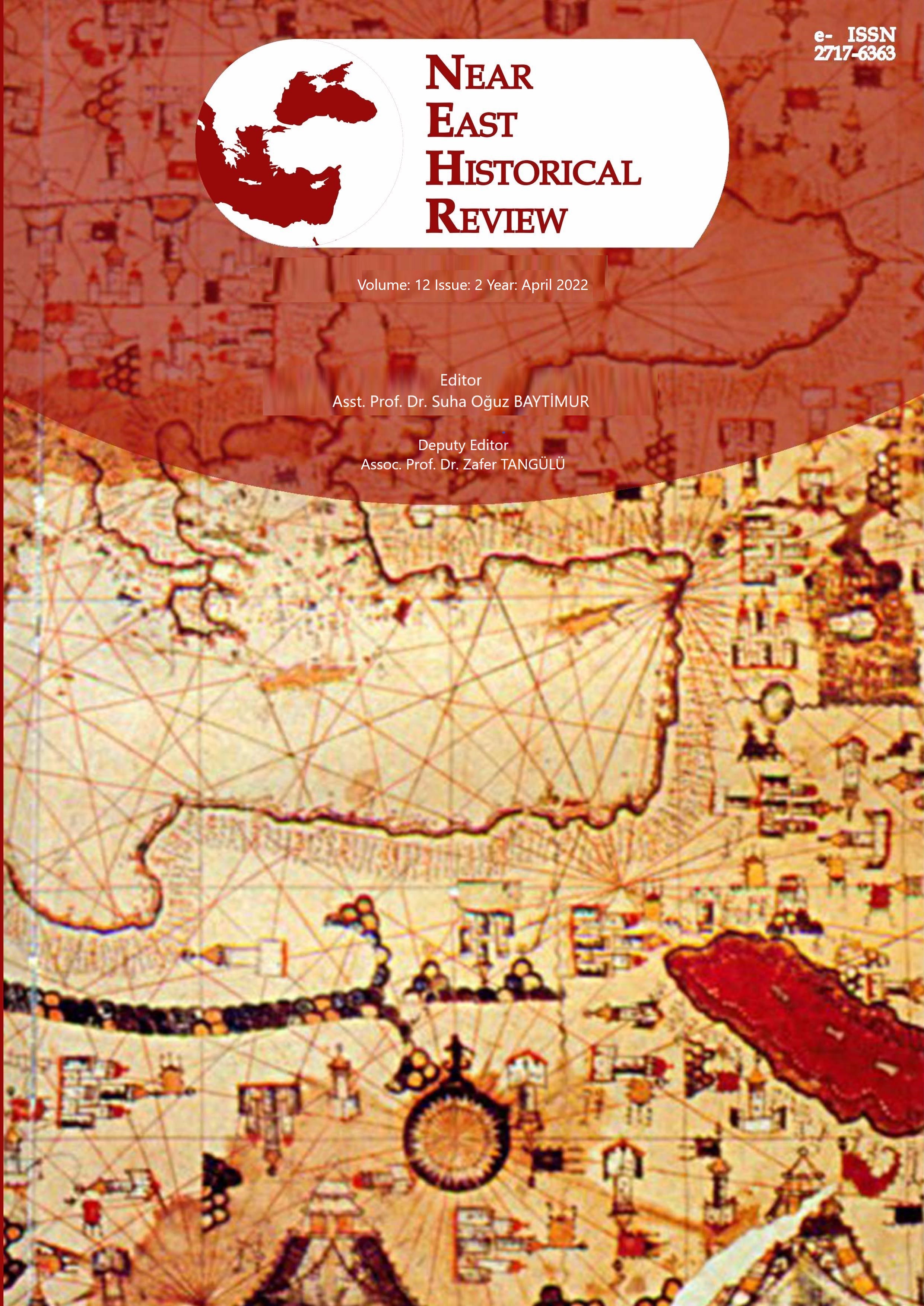Author :
Abstract
TBMM, Türkiye Cumhuriyeti dış politikasında önemli rol oynamıştır. Ankara’da yeni ülkenin temellerinin atıldığı günlerde dış politika TBMM bünyesinde (TBMM Hükümeti tarafından) yürütülmüştü. Bu süreçte TBMM nezdinde dış politikanın ana hatları oluşturulmuştur. TBMM’nin yürüttüğü dış politikada en dikkat çeken Sovyet Rusya ile ilişkilerdir. TBMM’yi ilk tanıyan ülkeler arasında Sovyet Rusya’nın olması, Milli Mücadeleye sağladığı destek dış politikanın şekillenmesinde önemli rol oynamıştır. TBMM Hükümeti ile Sovyet Rusya arasında 16 Mart 1921 tarihinde imzalanan Moskova Antlaşması yeni hükümetin diplomatik olarak tanınmasını sağlayan belgeler arasındadır.
Türkiye Cumhuriyeti ile Sovyet Rusya ilişkileri İkinci Dünya Savaşı yıllarında derin yara almış, savaş sonrasında Sovyet Rusya’nın tehditkâr tutumu Türkiye Cumhuriyeti’nin dış politikasını derinden etkilemiştir. Türkiye, Soğuk Savaş sürecinde Batı yanlısı dış politika benimsemişti. Türkiye’nin bu tutumuna karşın Sovyet Rusya ile kimi zaman yakınlaşma süreci de yaşanmıştır. Kıbrıs’ta yaşanan gerilim sonrasında Batı tarafından istediği desteği bulamayan ve diplomatik anlamda yalnız bırakılan Türkiye, Sovyet Rusya ile ilişkilerini yeniden ele almıştır. Sovyet Rusya ile İkinci Dünya Savaşı sonrasında bozulan ilişkiler iyileşme sürecine girmişti. Bu süreçte de TBMM’nin önemi ön plana çıkmıştı. TBMM üyeleri tarafından Sovyet Rusya’ya yapılan ziyaret ilişkilerin iyileşmesinde son derece önemli rol oynamıştır.
Keywords
Abstract
Grand National Assembly of Turkey has played an important role in the foreign policy of the Republic of Turkey. During the days when the foundations of the new country were laid in Ankara, foreign policy was carried out within the Grand National Assembly of Turkey (TGNA) (by the TGNA Government). The most striking in the foreign policy of TGNA is the relations with Soviet Russia. The presence of Soviet Russia among the countries that first recognized the TGNA and its support to the National Struggle played an important role in shaping the foreign policy. The Moscow Treaty, signed between the TGNA Government and Soviet Russia on March 16, 1921, is among the documents that provide diplomatic recognition of the new government.
The relations Turkey and Soviet Russian has received a deep wound in the Second World War, the post-war Soviet Russia's menacing attitude has profoundly influenced the foreign policy of the Republic of Turkey. Turkey, the Cold War had adopted pro-Western foreign policy in the process. Despite Turkey's attitude has also experienced rapprochement with Russia sometimes. Cyprus requested by the West can not find support in the wake of the tensions and diplomatic sense, Turkey is left alone, has reconsidered its relations with Soviet Russia. The relations with Soviet Russia, which deteriorated after the Second World War, were in the process of recovery. In this process, the importance of the TGNA came to the fore. The visit by the members of Turkish Parlamento Assembly to Soviet Russia played an extremely important role in the improvement of the relations.
Keywords
- Akça, Bayram ve Sinan Kıyanç, “Malakanlar’ın Anadolu’daki İzleri”, Sosyal ve Beşeri Bilimleri Araştırmaları Dergisi, C 18, S 39, Muğla 2017, ss. 22-43.
- Benhür, Çağatay, “1920’li Yıllarda Türk-Sovyet İlişkileri: Kronolojik Bir Çalışma”, Selçuk Üniversitesi Türkiye Araştırmaları Dergisi, S 24, Konya 2008, ss. 277-313.
- Derman, Giray Saynur ve Vefa Kurban, “Kıbrıs Sorunun Türk Dış Politikasına Etkisi veABD-SSCB ile İlişkiler”, Çağdaş Türkiye Tarihi Araştırmaları Dergisi, C 16, S 33, İzmir 2016, ss. 455-484.
- Dokuyan, Sabit, “İkinci Dünya Savaşı Sonrasında Sovyetler Birliği’nin Türkiye’den İstekleri”, Cumhuriyet Tarihi Araştırmaları Dergisi, C 9, S 18, Ankara 2013, ss. 119-135.
- Kılıç, Selda,” İstiklal Harbi’nde Sovyetler Birliğinden Gelen Yardımlar”, DTCF Dergisi, C 56 S 1, Ankara 2016, ss. 124-143.
- Kıyanç, Sinan, “1957 Türkiye Suriye Krizi’nin Analizi”, Tarih ve Günce, S. 10, İzmir 2022, ss. 209- 228.
- Lewis, Bernard, Modern Türkiye’nin Doğuşu, Güncel İngilizcenin III. Edisyon Çevirisi, 2. Baskı, Arkadaş Yayınları, Ankara 2009.
- Perinçek, Mehmet, Atatürk’ün Sovyetler’le Görüşmeleri Sovyet Arşiv Belgeleriyle, Kaynak Yayınları, İstanbul 2005.
- Qasımlı, Musa, Türkiye-Sovyet Sosyalist Cumhuriyetleri Birliği İlişkileri 1960-1980, Atatürk Araştırma Merkezi Yayınları, Ankara 2013.
- Sürmeli, Serpil, “Sergey Petroviç Natsarenus’un Ankara Büyükelçiliği Sırasında RusyaSosyalist Federatif Sovyet Cumhuriyeti İle İlişkiler”, Atatürk Dergisi, C 5, S 2, Erzurum 2006, ss. 31-55.
- Şimşir, Bilal, Malta Sürgünleri, Bilgi Yayınevi, İstanbul 1997.
- Tansu, Samih Nafiz, İki Devrin Perde Arkası, Anlatan: Hüsamettin Ertürk, Ararat Yayınevi, İstanbul 1969.
- Tellal, Eren, Uluslararası ve Bölgesel Gelişmeler Çerçevesinde SSCB-Türkiye İlişkileriTopal, Coşkun, “Türk-Rus İlişkileri ve Moskova Anlaşması”, Karadeniz Araştırmaları Enstitüsü Dergisi, C 4, S 6, Trabzon 2018, ss. 313-330.
- Yerasimos, Stefanos, Ekim Devrim’inden Milli Mücadele’ye Türk Sovyet İlişkileri, Gözlem Yayınları, İstanbul 1979.
- Yılmaz, Hasan, Tarihe Düşülen Notlar –1 Yasama Yılı Açılışında Cumhurbaşkanlarının Konuşması -1 (1 Mart 1924-14 Aralık 1987), TBMM Başkanlığı Yayınları, Ankara 2011.
- Yılmaz, Hasan, (Ed.), Tarihe Düşülen Notlar -2 Yabancı Devlet Adamlarının Genel Kurul Konuşmaları, TBMM Başkanlığı Yayınları, Ankara 2012.
- Yılmaz, Tuncer, (Ed), Tarihe Düşülen Notlar-3 Meclis Başkanları ve Genel Kurul Konuşmaları (1920-2013), TBMM Başkanlığı Yayınları, Ankara 2013.
- Yüceer, Saime, Milli Mücadele Yıllarında Ankara-Moskova İlişkileri, Ekin Kitapevi Yayınları, Bursa 1997.





